According to a recent report from MarketsandMarkets, the global RCM market has been estimated to be worth $49.6 Billion in 2023. And it is expected to attain $84.1 billion by 2028. So, you can understand the value of its market. However, many people misunderstand the term and consider that it is only medical billing and coding functions. Usually, healthcare Revenue Cycle Management has a connection with the financial health in the firms.
In this blog, we are going to cover everything that will help you in learning about RCM and its beneficial aspects for the businesses. So, keep reading and get a comprehensive overview of the knowledge and tools to optimize your RCM processes.
What is Revenue Cycle Management in Healthcare?
RCM stands for Revenue Cycle Management. In healthcare, RCM is a process that utilizes the management of different financial operations regarding billing and collecting the overall revenue for the medical facilities. Healthcare revenue cycle management is initiated when a patient makes an appointment, and after following multiple steps, the patient completes it by resolving the account balance. It gets balanced with the settling of the contractual adjustments, insurance payments, write-offs, and patient payments.
Moreover, RCM is beneficial in supporting revenue by minimizing claim denials, increasing collections, and reducing the number of days in accounts receivable. Thus, healthcare firms effectively acquire the right and on-time payments. It helps to optimize the overall financial performance. In short, RCM is an ideal solution for both the healthcare providers and the patients with complete satisfaction.
Why is RCM important to Practices/Hospitals/ Healthcare Organizations?
Revenue Optimization
The first reason that makes RCM a vital element for healthcare firms is their capability to optimize the revenue. It becomes possible with the minimization of claim denials and reducing the reimbursement time duration. Besides, it guarantees the proper coding and documentation with on-time claim submissions for revenue optimization.
Financial Stability
Appropriate billing of the patient services using RCM leads to a better cash flow in the organization. As healthcare providers can perform prompt and accurate claims submissions, it can fasten the time of offering services and receiving payments. Thus, the firms meet their financial obligations easily with the right implementation of RCM.
Performance Monitoring
The next factor that makes healthcare revenue cycle management systems valuable for the healthcare providers is better performance monitoring. In the RCM process, there is an involvement of the steps like data collection, revenue related data analysis, vital claims, and reimbursements. It helps in improved financial performance.
Better Operational Efficiency
Another essential point to use RCM is its ability to streamline the workflow in healthcare organizations. With the seamless RCM process, the staff of the healthcare providers can solely focus on the better patient care. Further, it improves productivity, and removes repetitive tasks with the use of automation and technological solutions.
Benefits of End-To-End Revenue Cycle Management
Get Specialization
When the healthcare providers get the RCM services for their organization, they sign up for insights from the industry experts. It adds value to the overall financial management of the company and professional growth.
Enhanced Collaboration
Large healthcare organizations have a huge number of tasks to perform. Thus, they have multiple departments with different operations in their firm. With the help of revenue cycle automation, organizations can improve their workflow and have better collaboration between the departments.
Access To Innovation
With the professional RCM solutions, healthcare providers get access to the modern technological solutions. End-to-end RCM providers help businesses with the latest revenue cycle tools that guarantee the up-to-date revenue cycle management.
Patient Satisfaction
When a healthcare provider uses the healthcare revenue cycle management services, they can offer clear communication to patients. They can discuss effectively about the financial responsibilities, billing statements, and insurance coverage.
Challenges in RCM
According to a recent post from Dolbey, there has been an increase in payer denials since the pandemic levels. Around 82% of the health system CFOs agree on this. Besides, it has also been mentioned that the Healthcare Financial Management Association and Eliciting Insights say that only 2% of the denials were decreased. Isn’t it concerning for the financial growth of the healthcare industry?
So, there could be changes that can affect the financial growth of healthcare providers. However, there are some common challenges in RCM that you can check below:
Billing & Coding Complexity
In the healthcare industry, there are many complex billing and coding processes with thousands of codes for diagnoses and processes. These get updated with time and need you to keep your knowledge fresh with new coding practices.
Evolving Healthcare Regulations
Another aspect in the healthcare industry that keeps transforming are the regulations and affects the RCM aspects like patient privacy, billing practices, and more. Thus, it becomes essential to keeping up with the changes.
Denial Management
Using RCM can involve the significant challenge of managing and reducing the claim denials. Every denied claim needs an extra resource to properly check, appeal, or resubmit the claim.
Staff Training
One thing that is constant with the RCM is the continuous changes in its services like billing practices, coding, regulations, and others. Thus, it includes the service providers to keep providing training to their staff members.
Data analysis burden
Many professionals find it a challenging part to perform the effective collection, integration, and interpretation of the large amount of data. It can be problematic in making accurate decisions.
Cybersecurity threats
Healthcare providers relying highly on digital systems for RCM can be challenged by the possibilities of various cybersecurity threats. It can include data breaches that can lead to financial losses and damage to reputation.
What are the components in Revenue Cycle Management?
The following steps will clarify the answer to the question: “What are the steps in the revenue cycle?” Check the different stages:
Pre-Registration
In this step, the demographics of the patients and their insurance information are collected before they visit the healthcare facility.
Patient Registration
This step includes the gathering of more essential information of the patient including the personal details and medical history for the appropriate registration.
Insurance Verification & Authorisation
It involves checking the insurance coverage and getting the essential authorizations for the processes.
Charge Capture And Coding
This step involves the documentation of all services and procedures, then translating them into billing codes for insurance claims. These are standard across the industry and define how healthcare providers will be reimbursed.
Claim Submission
The code claims will be submitted to insurance companies to finalize the payment. Paying party will effectively check if the claim is according to payment policies and how to do the payment: in-full, in-part, deny, or simply reject the claim.
Denial Management
This step includes the proper management and appealing of the denied insurance claims.
Payment Posting
Payment posting RCM is a stage, where there will be the posting of payment to the patient account. It gets done after the insurance company pays the healthcare provider.
Patient Billing
This step includes billing the patients for the balance uncovered by the insurance. It can comprise the co-payments, deductibles, or charges for services that are not covered.
Collections
In this step, we will follow up on the unpaid balances. It can involve sending the reminder bills and effective setup of payment plans.
Reporting
At last, there will be the analysis of data and KPIs with keeping a report on the overall health of the revenue cycle of health providers.
How the revenue cycle management process impacts revenue
The RCM process has a direct impact on the revenue of the healthcare provider. It efficiently streamlines the billing and payment procedures. The process ensures the following factors:
- Accurate patient information,
- On-time claims submissions,
- Efficient follow-up,
- Reduced errors and unwanted delays.
It significantly affects the revenue by quickly making the reimbursements and minimizing the claim denials. As a result, there will be an increase in the overall cash flow. Moreover, the RCM techniques help in identifying and addressing any revenue leak points. It helps with better decision making to optimize the revenue process and increasing financial reporting. Thus, RCM can maximize the revenue potential.
Best Practices in RCM
In a recent 2024 report of MGMA Provider Compensation, there was a higher median wRVU in 2023 than in 2022 for surgical specialties, non-surgical specialties, and primary care in physician-owned practices. Besides, the level of wRVU has been significantly unchanged from last year. With the best practices in RCM, the companies can do better. The following are the best practices that you can follow in RCM:
- Accurate Patient Registration: This will guarantee that every patient’s information is appropriately collected and verified for registration.
- Insurance Verification: This practice includes the confirmation of the patient insurance details before providing the services to avoid the chances of denials.
- Effective Coding: It helps to use the correct and up-to-date medical coding which helps in reducing the errors and improving reimbursements.
- Timely Claim Submissions: When you submit the claims in a timely manner, it will help in reducing the time for completing the payments.
- Patient Communication: You need to keep your patients consistently informed regarding their financial responsibilities and payment options.
- Regular Audits: With the help of conducting regular audits, you can easily identify and rectify different issues in the RCM process.
RCM for Small Practices
Like big organizations, RCM is also helpful for small medical practices. It ensures that billing and payments get completed on time. The small practices require these aspects to sustain the operations and consistently provide quality care. Besides, small practices have one common challenge: limited staff and resources, which proves the necessity of the RCM processes. With the implementation of appropriate RCM strategies, small healthcare firms can manage essential operations effectively. It leads to minimal claim denials, better cash flow, and more focus on patient care.
How technology can help with revenue cycle management
The incorporation of technology into healthcare revenue cycle management can provide more accurate and up-to-date financial outcomes for better growth. The following are the tools that can help in the RCM process:
- Automated Eligibility Verification: An automated system can help in effectively verifying the insurance cover of the patients and reduce the likelihood of billing errors and denial issues.
- Electronic Health Records (EHRs): It includes patient data across various healthcare settings. It allows for wider access to patient information to properly document and bill the patient encounters accurately.
- Electronic Billing & Payment Processing: This technological solution helps you in sending the patient bills electronically. Besides, it allows online payments to speed up the process.
- Medical Coding Software: The latest coding software allows coders to assign the correct codes for procedures and diagnoses accurately. A few systems include AI and machine learning to recommend codes and reduce errors.
- Denial Management Tools: The right technology like a denial management tool can help businesses in tracking and analyzing the denied claims appropriately. It aids in identifying the patterns and root causes to address the systemic issues.
- Automation of routine tasks: One of the best uses of technology is to automate the routine administrative tasks like appointment scheduling, payment reminders, insurance verifications, and more. It will reduce your workload.
New technologies in RCM and their future
With the continuous advancements in the RCM for the healthcare industry, there is a positive future in new technological solutions. In a quick manner, the following are the possibilities that will increase to get integrated into the RCM:
- Artificial Intelligence (AI) & Machine Learning (ML): To enhance the predictive analysis for different tasks like claim denials, coding automation, and more.
- Robotic Process Automation (RPA): To streamline continuous tasks such as data entry and claims processing. It helps in minimizing the errors and saves time.
- Blockchain Technology: To guarantee safe and transparent transactions to improve the data integrity in patient records and billing.
- Cloud Computing: It provides expandable solutions for better data storage, access, and real-time updates. The users can properly collaborate with it.
- Telehealth Integration: This helps scale billing capabilities and includes remote patient communications. It guarantees holistic revenue tracking.
Why is data important in revenue cycle management
Recently, Brown Gibbons Lang & Company, an investment bank in Cleveland, Ohio has shared a new report on PR Newswire regarding the growing importance of RCM in transforming behavior of the health industry. In the report, BGL includes the insights from a series of exclusive interviews of behavioral health executives. Thus, you can see that RCM has a significant value in global healthcare.
In healthcare revenue cycle management, data plays a crucial part in driving the efficiency and accuracy during the overall financial cycle of the healthcare facilities. With the right use of data, healthcare providers can appropriately track patient interactions, monitor claim status, and recognize patterns that can affect revenue flow. Besides, the accurate collection and analysis of data can enable on-time billing with minimal claim denials and better cash flow.
Moreover, data-driven insights can help in better decision-making. It leads to the optimization of different operational processes and improves overall patient care. In the healthcare industry, where financial stability is pivotal, using accurate data is essential. It guarantees that healthcare firms maintain a transparent, robust, and efficient revenue cycle. Thus, data is a central part of RCM that contributes to the success and sustainability of the businesses.
What are the Revenue Cycle Management Services
The following are the most common healthcare revenue cycle management services that you can check:
Medical Billing
It helps to streamline the revenue cycle management and guarantees various functions like timely reimbursements, correct claims processing, and better financial health.
Medical Coding
With right coding, you can ensure the appropriate billing with the minimal claim denials. It leads to maximizing the revenue which is essential for the healthcare firm.
Patient Access
In RCM, patient access guarantees you the smooth flow for different steps including scheduling, registration, and eligibility verification. It enhances the patient experience.
Denial Management
It can optimize the claim approvals with the reduction of the revenue loss. Denial management also ensures prompt payments which improves the overall finance.
AR
AR is Accounts Receivable which is helpful to optimize the cash flow. It effectively guarantees the timely payment collection and better financial stability.
Claim Denials
This service helps healthcare providers with the effective management of their claim denials. It adds benefits to better cash flow with less errors and increased efficiency.
EHR
Electronic Health Records (EHR) is another RCM service that helps in streamlining the billing. As a result, healthcare providers manage their revenue cycle management easily.
AI Software
AI software in the RCM process allows healthcare firms to improve their accuracy using automation. It helps in optimizing the financial operations in medical practices.
Automation
This service is used to fasten functions in the RCM process, and the major advantage of this solution is that it accelerates payments and enhances financial growth.
Payment Posting
It is another service that helps to guarantee accurate payments recording. Payment posting adjusts the AR and effectively optimizes the cashflow for efficient RCM.
Things you need to care about before You Hire A Revenue Cycle Management Company
There are several factors that you need to consider before hiring an RCM company for your healthcare business. The first thing to do is to see if your collaboration with them meets all your organization’s needs. It will be easily identified by checking their overall experience in managing similar practices to the ones you require. Then, you can check what technological integrations they have to ensure an advanced approach, as the world is changing in terms of technology in every field.
Moreover, it is always the best thing to examine the track record of the RCM services provided to enhance the phases of claim approval rates and minimize denials. You can also check the reviews for the RCM firm from their existing and previous clients. Another aspect that is crucial to identify is whether they are accurately complying with the standards of healthcare rules and data security. Lastly, you must check the cost structure and compare it with other service providers. Check if it aligns with your budget.
What does the future hold for RCM?
Undoubtedly, the future of RCM is going to be transformed by emerging technologies and innovations. Mckinsey, being an international consulting firm, has also mentioned the success of the revenue cycle with automation and AI. As solutions like AI and machine learning are growing with time, we can see better operations efficiency with fewer error possibilities and faster reimbursements. Besides, there are also other advancements that are causing growth in the RCM processes. For instance, telehealth, robotic process automation, and others are becoming crucial parts of the future success of using RCM in healthcare finance.








